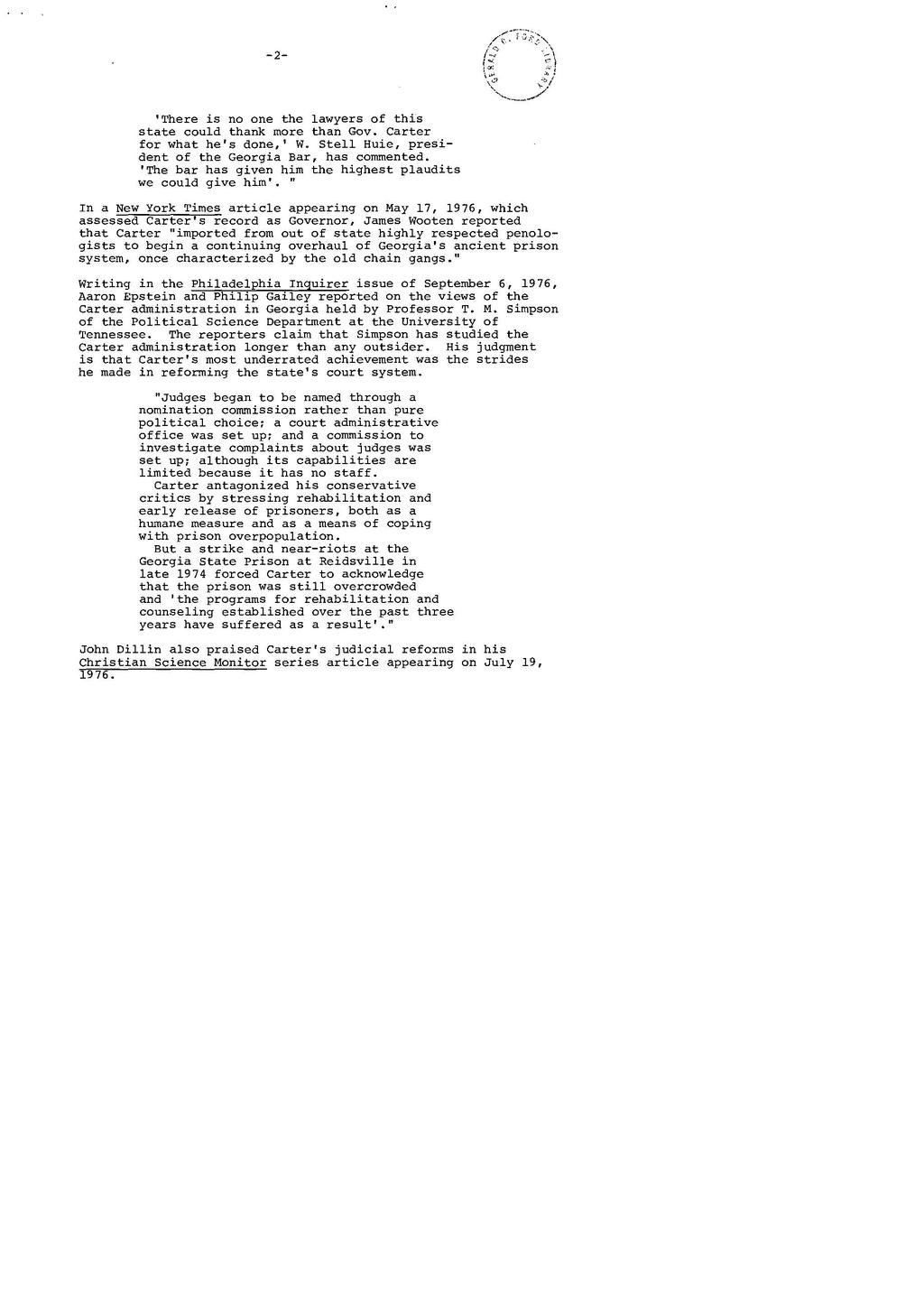-2-
'There is no one the lawyers of this state could thank more than Gov. Carter for what he's done,' W. Stell Huie, president of the Georgia Bar, has commented. 'The bar has given him the highest plaudits we could give him'."
In a New York Times article appearing on May 17, 1976, which assessed Carter's record as Governor, James Wooten reported that Carter "imported from out of state highly respected penologists to begin a continuing overhaul of Georgia's ancient prison system, once characterized by the old chain gangs."
Writing in the Philadelphia Inquirer issue of September 6, 1976, Aaron Epstein and Philip Gailey reported on the views of the Carter administration in Georgia held by Professor T. M. Simpson of the Political Science Department at the University of Tennessee. The reporters claim that Simpson has studied the Carter administration longer than any outsider. His judgment is that Carter's most underrated achievement was the strides he made in reforming the state's court system.
"Judges began to be named through a nomination commission rather than pure political choice; a court administrative office was set up; and a commission to investigate complaints about judges was set up; although its capabilities are limited because it has no staff.
Carter antagonized his conservative critics by stressing rehabilitation and early release of prisoners, both as a humane measure and as a means of coping with prison overpopulation.
But a strike and near-riots at the Georgia State Prison at Reidsville in late 1974 forced Carter to acknowledge that the prison was still overcrowded and 'the programs for rehabilitation and counseling established over the past three years have suffered as a result'."
John Dillin also praised Carter's judicial reforms in his Christian Science Monitor series article appearing on July 19, 1976.
